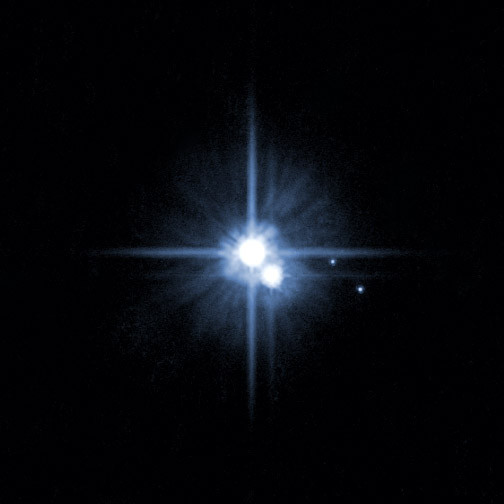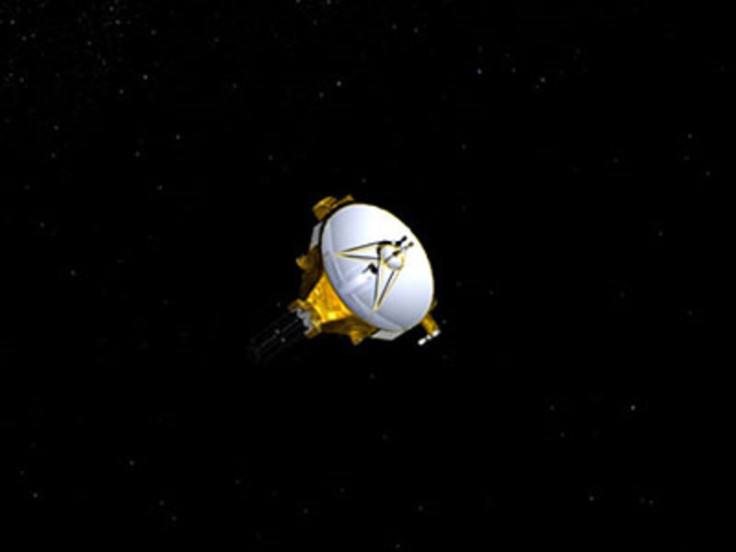New Horizons Pluto wake up: 'We expect to discover a whole new planet'

After launching in 2006, the New Horizons spacecraft will wake up on 6 December to begin the first ever exploration of Pluto.
Having travelled 2.9 billion miles from Earth, the spacecraft will begin its flyby in January – culminating in its closest approach in July.
The magnitude of the mission is difficult to convey, New Horizons principal investigator Alan Stern told IBTimes UK.
"It's the last train to Clarksville," he said. "There's nothing like it planned ever again. This a Christmas present that has been sitting under my tree since 1989 and I'm going to unwrap it 14 July."
The story of the New Horizons mission really began in the 1990s. There was a great deal of controversy over sending a spacecraft such a long way, with concerns that the cost would only provide a short period of return.
However, scientists made the spacecraft to counteract these problems – it has been designed to learn about Pluto for six months and is expected to provide a wealth of data about a planet we currently know very little about.
Stern, of the Southwest Research Institute, said that over the first few months, scientists will be monitoring the environment around the planet and taking long range pictures of Pluto and its moons in order to target the exact flyby trajectory: "Then beginning in May, when we exceed the resolution of the Hubble Telescope, we'll start to really map Pluto and then in June it's satellites."

Describing our current images of Pluto as "just smudges" compared with those of other planets, Stern said the mission "is really turning a point of light into a planet".
"In June we begin to measure the compositions and map the temperatures across the surface as well as study the atmosphere, to look for new moons, to look for rings.
"As you know this is a mission of pure discovery. No one has been to this planet, no one has been to this kind of planet, and no one has been to the Kuiper belt. Not to be over the top but this is like one of those legendary space missions from the 60s or 70s – first to mars, first to Venus, first to Jupiter – but done with 21<sup>st century technology.
"We are expecting to discover a whole new planet so it's very hard to make predictions. It's like explorers like Columbus making the first explorations of a new continent where they had no idea what to find."
Even travelling at the speed of light, the signal from the New Horizons spacecraft will take 4.5 hours to reach Earth. Since its launch, however, it has been "extremely healthy" and there is no reason to think there will be any problems with the wake up or flyby.
"If something goes wrong and the spacecraft calls for help, the fastest we can react is nine hours. So the spacecraft has on board an intelligent agent that acts like a pilot and can run checklists based upon recognised possibilities of failure like fuel leaks or what have you.

"But the spacecraft is extremely healthy. There's nothing that's broken. We're not using any of the backup systems. All the sensors and instruments are healthy and meeting specification and I expect it to be a very successful flyby unlike anything people have seen before."
After the flyby, scientists will spend more than a year downloading the data from the spacecraft, with "vast quantities" expected. This means there will be new discoveries coming out of the New Horizons mission for the next few years.
Following this, the team hopes to continue with the mission, travelling deeper into the Kuiper belt. Stern said they have found two very small objects – roughly the size of small states – about a billion miles beyond Pluto.
The spacecraft has enough fuel to reach one of these two objects and, as long as they get permission to Nasa and the probe remains healthy, they will arrive at the location in 2019.
"After that who knows. The spacecraft has power to last 25 more years and it's very healthy, so like Voyager has just been exploring and exploring, we could have a very long and productive mission after that. We'll just have to see."
© Copyright IBTimes 2025. All rights reserved.






















